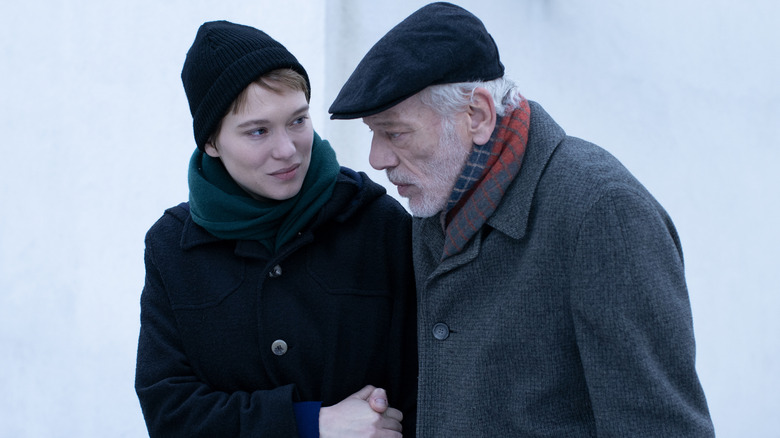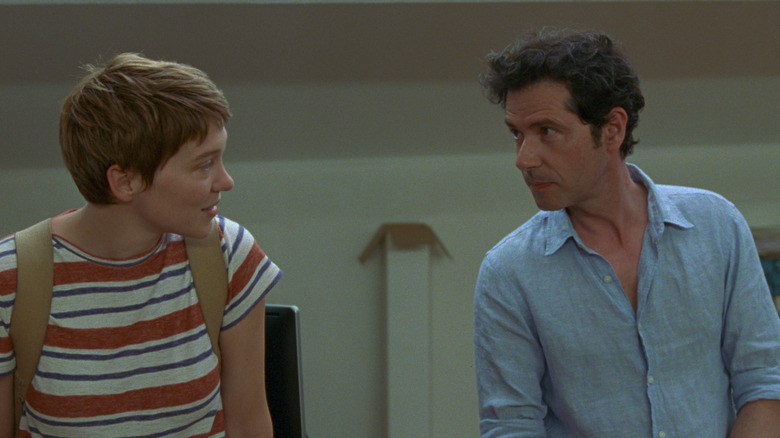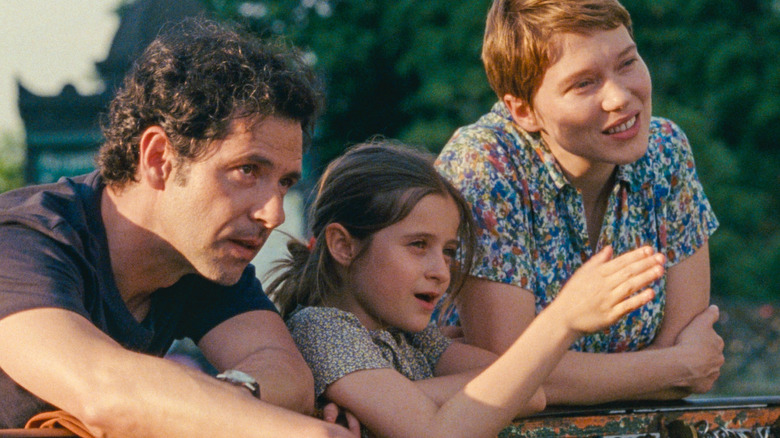One Fine Morning Review: A Clear-Eyed Drama About Love And Farewell [NYFF]
The permanence of love, passion, and marital stability is often questioned in the directorial offerings and screenplays of French filmmaker Mia Hansen-Løve. Blending the familiar themes and the photography of "Things to Come" and "Goodbye First Love," is Hansen-Løve's "One Fine Morning" which is effused with the creator's motif of plain shots and featherweight dramatic touches that serves to enhance, not dilute nor cheapen, its emotional focuses in 35mm. This has worked in Hansen-Løve's craft because she lets the emotions unravel naturally as players process their fate and their drudgery.
In conjunction with Hansen-Løve's usual collaborators, the cinematographer Denis Lenoir and editor Marion Monnier, the aesthetic of "One Fine Morning" is just as un-fancied as the editing and the cinematography. But those have been assets to her work in favor of gleaning humanity and the brisk pace of life. Like in her previous works, director Hansen-Løve has a gentleness when painting the portrait of women living and enduring in transitions, often exiting the bubble of a relationship or (re)entering.
Woman-in-transition
The woman-in-transition is French widow Sandra (Léa Seydoux), a professional translator raising her 8-year-old daughter Linn (an impish Camille Leban Martins). Sandra has reached a devastating point in her adulthood. Her father (Pascal Greggory in a heartbreaking performance) is diagnosed with Benson's syndrome, a neurodegenerative disorder. He's fading from consciousness and receding into a moving and muttering shell of a man as he clings to dear life for his memories. In one distressful incident, Sandra runs into one of his former students and seems to keep it together with a smile. Then her face reddens and the tears leak out as she removes herself from the social situation.
Sandra encounters an old friend, Clément (Melvil Poupaud), a husband, father, and cosmo-chemist (not an astronomist, as he constantly corrects people in a running gag). A passion blossoms between them. The spark of her love life and her witnessing the dissolution of her father's personhood is not disparate episodes, but highly linked emotional events that wash over each other. Seydoux is a winner in "One Fine Morning," showing up in every frame with a beatific warmth. Whether Sandra is taking her daughter to the park, testing her ailing father on retrieving his memory, or submerging herself in the rapture of passion with her lover, we feel how Sandra's existential sadness and her pursuit of pleasure intersect. Her romance isn't just a respite from the heaviness of losing her father but a pursuit of living life to the fullest.
Love and goodbye
The tiring process for Sandra to find a suitable nursing room in France is told with clear-eyed frankness. The frustration is compounded by a routine of hospice spaces ejecting him when his stay expires. At his "final" residence, elders mutter and wander the hallways like zombies and another old woman frequently gets lost in his room as if trying to return to a space taken from her. There, Sandra is constantly exposed to reminders of mortality closing on her father.
Some family history also haunt the stress without overpowering their familial duty. Her father calls for his current companion, who is also disabled and can't care for him. While his ex-wife (an excellent Nicole Garcia), though she deeply cares for her ex, expresses frustration that she has to deal with his medical affairs when her ex-husband is calling for the name of his lover. Running parallel to these tensions, their love between Sandra and Clément sparks a will-they-won't-they since the latter is concerned about disrupting the domestic circle he has established with his wife and son.
A significant point of their relationship occurs when Sandra has a forward conversation with Clément, starting with "If we're together in 30 years, imagine that we're still living in 30 years, and I get my father's disease." What would he do if she were to be stricken with a degenerative condition (she apparently can't inherit it but the hypothetical is too strong to not think of it)? What dilemmas will they face when finding her care? They agree to drop the questions and enjoy their time together.
Compared to "Things to Come" and "Goodbye First Love," the central couple gets to "win" in a sense and stay together, though not without a tango of sadness nor is the audience discouraged from contemplating implications after the end credits roll. As we bear witness to the fraught family dynamics of Sandra's elders, that gives us space to hold some foresight. What will happen if emotional conflicts arise out of the tears of their relationship history as they age into old shells? Hansen-Løve seems to suspect those questions could apply in a different or similar way later in their lives.
/Film Rating: 9 out of 10


